Go back
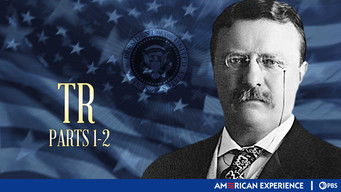
T.R.: The Story of Theodore Roosevelt (1): The Long Campaign
Episode number: 1
Overview: TR is born into a wealthy New York family that has a strong sense of social justice. He fights his severe asthma through a strenuous exercise program. He becomes New York State assemblyman. Then tragedy strikes with the untimely deaths of his beloved first wife and his mother. To escape his grief, he flees to the Dakota Badlands for the rigors of ranch life. When he returns, his political career flourishes; he eventually becomes William McKinley's Vice President.
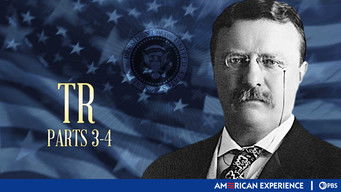
T.R.: The Story of Theodore Roosevelt (2): The Bully Pulpit
Episode number: 2
Overview: After McKinley's assassination, Roosevelt becomes an "accidental" president. Seeing himself as a crusader, TR uses the presidency to advance his agenda of social reform. He expands the power of the presidential office and comes to dominate American politics. Yet, the night he is elected to a second term, TR announces he will not run again, ultimately weakening his second term.
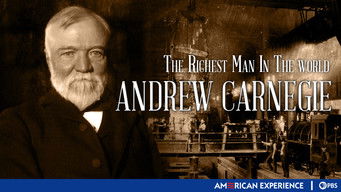
The Richest Man in the World: Andrew Carnegie
Episode number: 3
Overview: A look at the poor emigrant boy who built a fortune in railroads and steel, and, unlike any industrialist of his time, began to systematically give it away; a man full of contradictions and inner conflict.
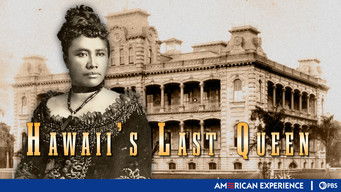
Hawaii's Last Queen
Episode number: 4
Overview: Liliu'okalani moved easily between two worlds -- she had dined at the White House, had been a guest at Buckingham Palace, yet never abandoned her Hawaiian traditions. A writer and composer, she was thrust into a role she was never prepared to play, caught between two opposing forces.
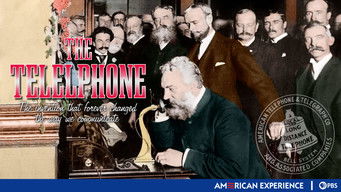
The Telephone
Episode number: 5
Overview: At first rented only "to persons of good breeding," seen as an expensive luxury for doctors and businessmen, within a decade the telephone had begun to transform American life. Trees gave way to telephone poles as operators known as "hello girls" began to connect a sprawling continent.

Big Dream, Small Screen
Episode number: 6
Overview: The little known story of Philo T. Farnsworth, a Utah farm boy who first sketched out his idea for electronic television at the age of fourteen. An eccentric genius, Farnsworth spent years battling corporate giants to receive acknowledgment for his invention.

New York Underground
Episode number: 7
Overview: It began with the blizzard of 1888 -- mountains of snow twenty feet high, horse cars and omnibuses abandoned, the city paralyzed. There was no doubt New York needed a public transportation system. It would be an American epic -- the largest public works project in history, overshadowed only by the Panama Canal.

Troublesome Creek: A Midwestern
Episode number: 8
Overview: A story of the realities leading to the vanishing role of the family farm in the United States.

Around the World in 72 Days
Episode number: 9
Overview: At the age of nineteen, Nellie Bly talked her way into an improbable job on a newspaper, then went on to become "the best reporter in America." She was serious and spunky. To expose abuse of the mentally ill, she had herself committed. But when she travelled around the world in just 72 days, beating Jules Verne's fictional escapade, she turned herself into a world celebrity.

Gold Fever
Episode number: 10
Overview: The 1890's in America were desperate times. A depression brought bank and business failures and forced millions of men and women from their jobs. When gold was discovered in a frozen no man's land between Canada and Alaska, 100,000 people made the treacherous journey in search of riches.

Vietnam: A Television History (Part 1 & 2)
Episode number: 11
Overview: "Vietnam: A Television History" begins by tracing the "Roots of a War" to French colonialism. "America's Mandarin" looks at the start of America's involvement in Vietnam during the 1950s and '60s.

Vietnam: A Television History (3): LBJ Goes to War
Episode number: 12
Overview: LBJ Goes to War (1964-65) examines the escalating American involvement following the Tonkin Gulf Resolution. Interviewed: Gen. William Westmoreland (USA Ret.) and former Secretary of State Dean Rusk.

Vietnam: A Television History (4): America Takes Charge
Episode number: 13
Overview: In "America Takes Charge (1965-67)," GIs recall combat experiences during the years of U.S. military escalation. Also: a sequence in which Americans and Vietnamese describe the same operation.

Vietnam: A Television History (5): America's Enemy
Episode number: 14
Overview: As "Vietnam: A Television History" continues, "America's Enemy (1954-67)" examines the escalating war from the point of view of North Vietnamese leaders and their followers, beginning with the country's partition after the French defeat. Interviewed: former Premier Pham Van Dong.

Vietnam: A Television History (6): Tet 1968
Episode number: 15
Overview: Vietnam: A Television History": TV-news footage graphically recalls "Tet 1968," the bold North Vietnamese and Vietcong offensive. The attacks gave the enemy a "brilliant political victory" in the U.S, says former Secretary of State Dean Rusk.

Vietnam: A Television History (7): Vietnamizing the War
Episode number: 16
Overview: "Vietnam: A Television History": The gradual withdrawal of U.S. troops and their replacement by the South Vietnamese are recalled in "Vietnamizing the War (1968-73)." But morale was low among Americans still in the country, and veterans interviewed recall racial divisions and the availability of drugs.

Vietnam: A Television History (8): Cambodia and Laos
Episode number: 17
Overview: America's involvement in—and secret bombing of—Cambodia and Laos are chronicled as "Vietnam: A Television History" continues. After the bombing halt in August 1973, the Communist Khmer Rouge advanced on the Cambodian capital of Phnom Penh, and finally, in April 1975, the city fell.

Vietnam: A Television History (9): Peace is at Hand
Episode number: 18
Overview: "Vietnam: A Television History": "Peace Is at Hand (1968-73)" recalls the peace negotiations in Paris, including Henry Kissinger's "secret" talks with Le Duc Tho. As the talks dragged on, the U.S. stepped up air attacks.

Vietnam: A Television History (10): Homefront USA
Episode number: 19
Overview: "Vietnam: A Television History - Homefront U.S.A.," traces the widening rift between supporters and opponents of the war, from the first demonstrations in the mid-1960s to the May 1970 Kent State shootings.

Vietnam: A Television History (11): The End of the Tunnel
Episode number: 20
Overview: "Vietnam: A Television History" concludes with "The End of the Tunnel," which recalls the 1973 Paris accords and the subsequent collapse of South Vietnam. Included: vivid footage of helicopter evacuations in Saigon during the final hours before the Communists took the city on April 30, 1975.

T.R.: The Story of Theodore Roosevelt (3): The Good Fight
Episode number: 30
Overview: TR is just 46 years old when he is inaugurated as president. He builds the Panama Canal, wins the Nobel Prize for Peace, and combatively introduces widesweeping social reforms. As his presidency draws to a close, TR names his best friend, Secretary of War William Howard Taft, as his successor. Taft wins the 1908 election.

T.R.: The Story of Theodore Roosevelt (4): Black Care
Episode number: 31
Overview: TR opposes his old friend Taft for the 1912 Republican nomination. When Taft wins, TR runs for president with his own Progressive Party. Despite enormous popular support, he loses to Democrat Woodrow Wilson. TR, now 55, retreats to the jungles of Brazil for two years for what becomes the most harrowing expedition of his life. His four sons join the World War I effort; shatters TR. Nearly six months later, he dies in his sleep at Sagamore Hill.